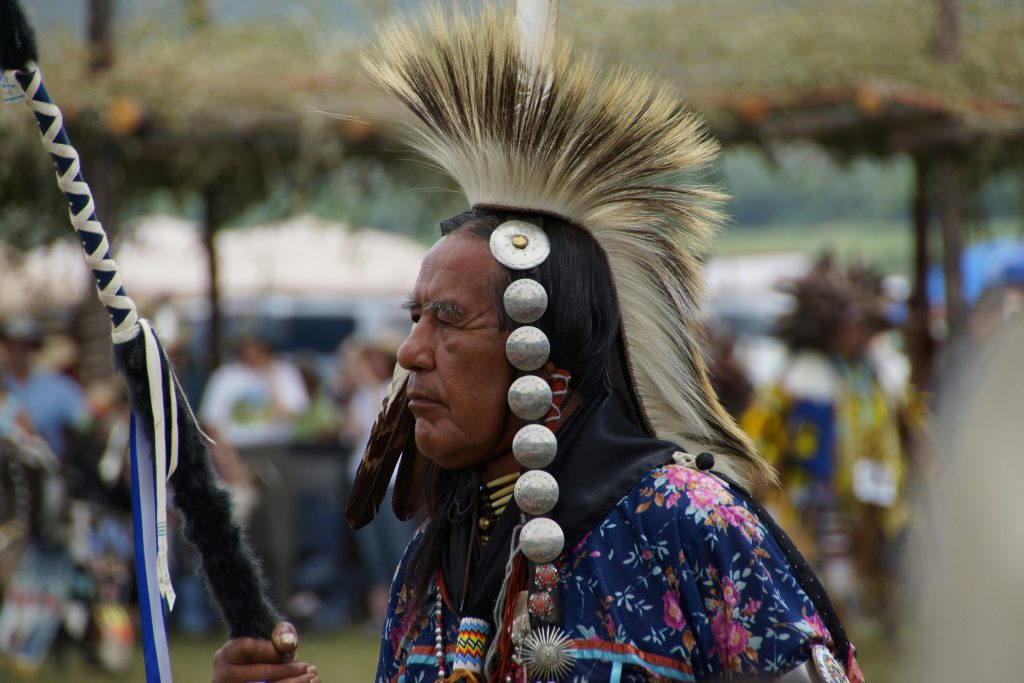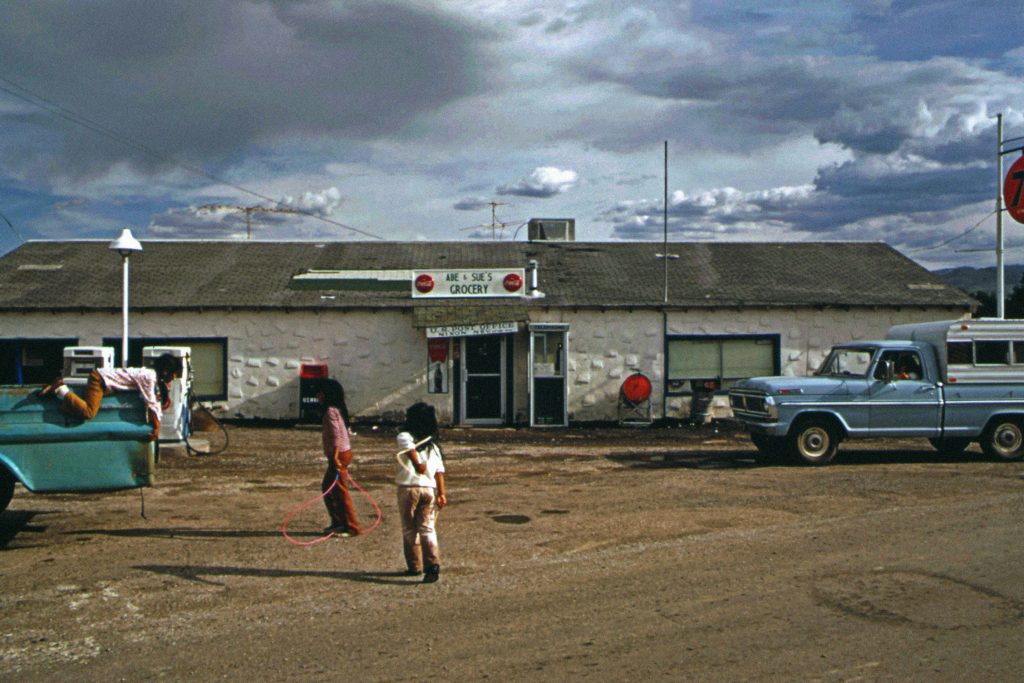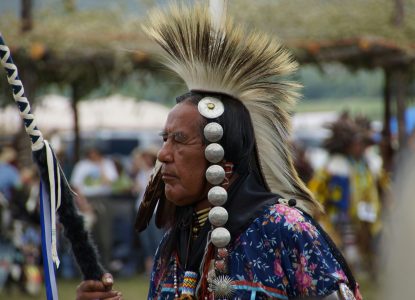By JoAnne Wadsworth, Communications Consultant, G20 Interfaith Forum
— —
On June 27, 2024, the G20 Interfaith Forum Anti-Racism Initiative, in collaboration with G20 Social, the International Academy for Multicultural Cooperation, the Seventh Generation Fund for Indigenous Peoples, and the United Religions Initiative, hosted a virtual panel discussion entitled “TOWARDS INDIGENOUS SOVEREIGNTY: Exploring Rights and Solidarity in Self-Governing Territories.” The event brought together indigenous leaders and experts to explore the complexities of indigenous sovereignty and its relationship with state and federal authorities.
Ja:no’s—Janine Bowen, Director of Seneca Language, Allegany Territory, Seneca Nation, moderated the discussion. Panelists included Dr. Timothy Begaye (Diné), Vice President of Academic Affairs at Southwestern Indian Polytechnic Institute; Christopher Peters (Puhlik-lah/Karuk), President of the Seventh Generation Fund for Indigenous Peoples; and Robert Odawi Porter (Seneca), Former President of the Seneca Nation.

Ja:no’s—Janine Bowen
Bowen opened the discussion by emphasizing the unique status of indigenous nations:
“Indigenous self-governance predates the US constitution and gives indigenous nations rights to self-determine and even challenge state authority, regulation, and overreach. Federal government, not state governments, deals with indigenous peoples, nation to nation. Indigenous nations are governmental and political entities, not racial groups.”
She then invited each panelist to present their thoughts on indigenous sovereignty.
Dr. Timothy Begaye
Begaye provided a historical context for tribal sovereignty, tracing its origins to early European-Indigenous relations:
“The story goes all the way back to when the Europeans came to this land. Law said any European coming across new lands could claim that land for their mother country. They came to the ancient United States and claimed it for Great Britain, never mind who was living there. From that comes the need to establish relations with the local people living there, leading to treaties and agreements that defined and established relationships.“
He also highlighted the complexities that arise from this unique status, particularly in areas like law enforcement:
“You have all these sovereign governments in place (federal, state, county, tribal). But interestingly, tribal law is superceded by federal law. They can only enforce their laws on tribal land. So what happens if a non-tribal member is on tribal land breaking tribal laws? Their enforcement ability becomes limited in that way.“
Christopher Peters
Peters focused on the intentional limitations placed on indigenous sovereignty, particularly in California:
“Establishments of reservations in California are very small, and not on the quality of land that is seen on reservation land in the Midwest. It can’t support an economy — we can’t support ourselves. And I think that’s on purpose.“
He emphasized the need for significant land repatriation to fully exercise indigenous sovereignty:
“We need to get land back, and we need to get huge amounts of land back in order to exercise our sovereignty and our power and our rights as indigenous peoples.“

Robert Odawi Porter
Porter stressed that sovereignty is inherent and must be actively exercised:
“Sovereignty is not given. It is inherent and must be exercised in order to stay alive. So do you really believe in your autonomy, self-government, freedom to choose your future as a people? A lot of native people have lost that inherent belief that they can be a free people after decades and decades of colonialism.“
He also highlighted cultural assimilation as a significant threat to indigenous sovereignty:
“Cultural assimilation is the silent killer. In the grand scheme of nations, there are worse than America. But America’s belief system is built on starting something new from your old culture as an immigrant — and it makes us complacent in our fight for cultural survival.“
Q&A Session
The Q&A session addressed several critical issues facing indigenous communities:
On the topic of violence against indigenous women, Robert Odawi Porter highlighted recent legal changes:
“Colonialism says that tribal nations don’t have criminal jurisdiction over non-indians — but now things are changing so that they have inherent power to prosecute domestic violence offenders.”
Christopher Peters pointed out a specific concern in the fight to end violence against indigenous women:
“Man camps continue to be a major issue when it comes to this topic. In the gold rush in California, men didn’t bring their women with them, and used indigenous women in horrible ways. Certainly in Canada and the US, surrounding the areas where resources are extracted, only men come and work in those communities. Reservations tend to be nearby these areas, so indigenous women and young men are targeted.”
Regarding the land back movement and Indian boarding school recovery initiatives, Porter shared the following resources for those seeking to become more involved:
https://ndncollective.org/land-back-for-the-people/
https://www.bia.gov/service/federal-indian-boarding-school-initiative
On the issue of reconciliation for boarding school abuses, the panelists had differing views:
Peters stated:
“The concept of reconciliation — there’s no such thing. You can be truthful about our past, but you can’t reconcile it.”
However, Dr. Timothy Begaye offered a different perspective:
“When it comes to boarding schools and looking at the past, it’s a horrible issue. But for some people who are deeply, directly affected by it, just to talk about it and hear stories allows them to socially and emotionally process what has happened and put to rest that piece of them that continues to mourn.”
Conclusion
In their concluding remarks, the panelists emphasized the importance of education, land rights, and focusing on future generations. Porter concluded with a powerful statement:
“At the end of the day, sovereignty is an internal activity for our people. Washington can’t fix it, lawyers can’t fix it. We have to focus on our children, and how we can teach them in tangible ways to save our nations.”
As indigenous nations continue to navigate the complex landscape of sovereignty and self-governance, discussions like these highlight the ongoing challenges and the critical importance of preserving and strengthening indigenous rights and cultures for future generations.
— —
JoAnne Wadsworth is a Communications Consultant for the G20 Interfaith Forum Association and Editor of the Viewpoints Blog.


